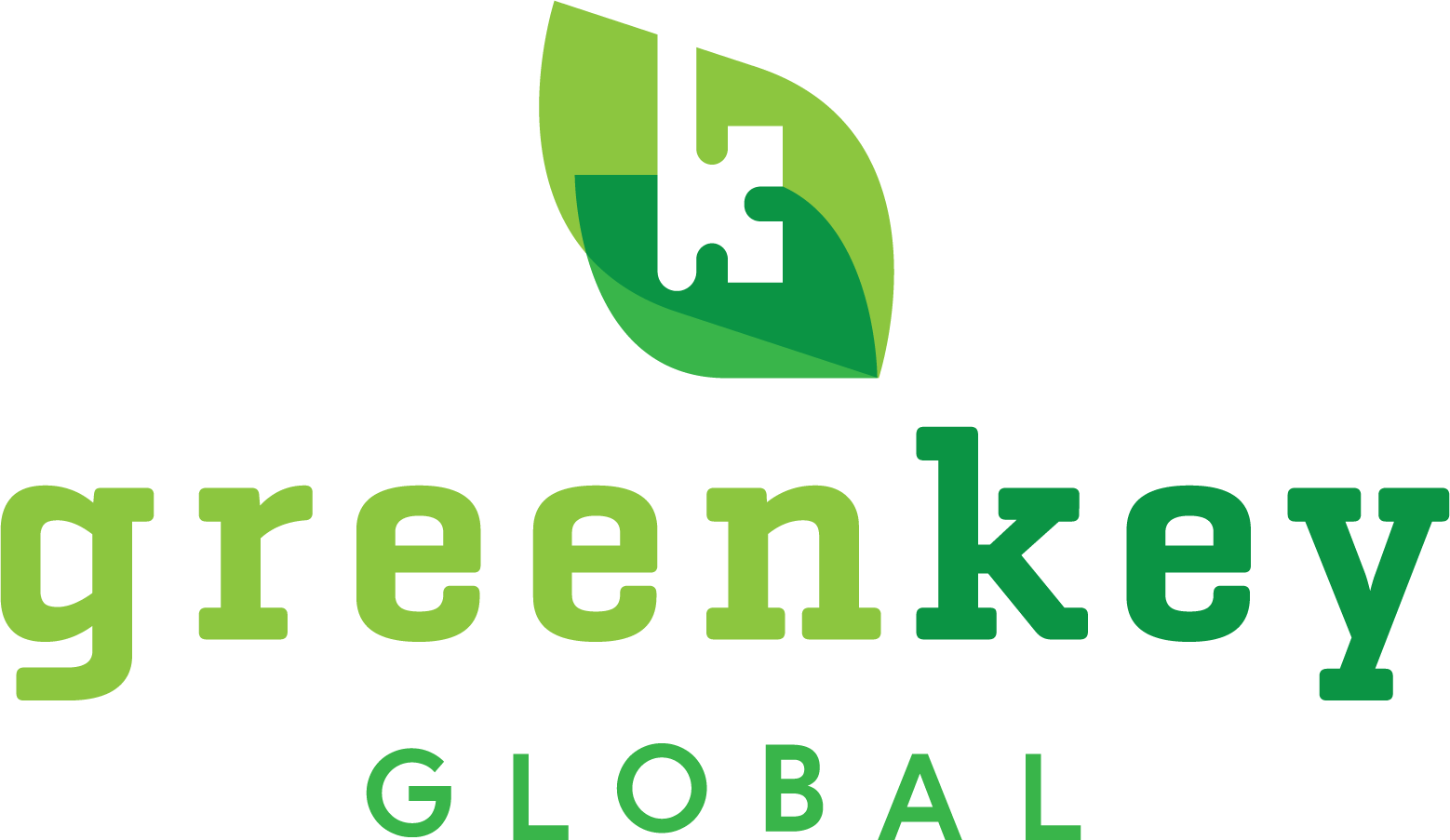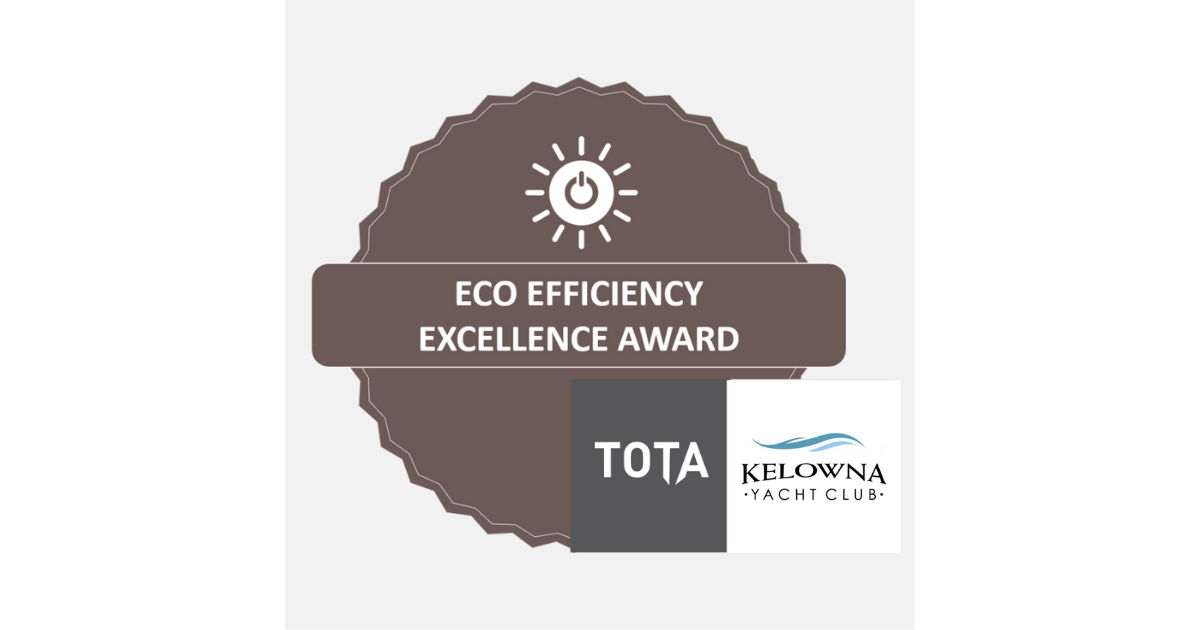
News & Resources
The latest Thompson Okanagan tourism industry news from TOTA, tourism businesses, and communities.
YLW welcomes Lynx Air to Kelowna
Lynx Air (Lynx) will begin service for YLW Kelowna International Airport in April 2022 with non-stop service to Calgary and Vancouver twice a week on a fleet of brand-new Boeing 737 aircraft. By May, Lynx will be operating 76 flights per week and will continue to add destinations and routes in the summer.
Special launch fares are offered from $39 one-way (for a limited time).
Flights are now available for booking at FlyLynx.com →
Lynx Air (Lynx) will begin service for YLW Kelowna International Airport in April 2022 with non-stop service to Calgary and Vancouver twice a week on a fleet of brand-new Boeing 737 aircraft.
Lynx launched in November 2021 with the ultra low-cost carrier model which has revolutionized air travel across Europe and the United States by offering low fares, flexibility, and choice. The airline has selected Calgary as its headquarters. Lynx announced the launch of its booking website, with tickets going on sale for flights to the airline’s first five destinations: Toronto, Vancouver, Calgary, Kelowna, and Winnipeg.
An affordable airline like Lynx will open doors for travellers looking to explore our beautiful region and increase travel opportunities for the Okanagan community. Special launch fares are offered from $39 one-way (limited time).
By May, Lynx will be operating 76 flights per week and will continue to add destinations and routes in the summer.
Lynx will compete directly with Flair Airlines and Swoop in the ultra-low-fare market, giving travellers three low-cost options out of Kelowna. Alaska Airlines recently announced they will be doubling the number of flights from Kelowna to Seattle starting in March 2022.
Flights are now available for booking at FlyLynx.com →
UNWTO records modest tourism increase in 2021
Global tourism experienced a four per cent upturn in 2021 when compared to the prior year, with a total of 415 million international trips made.
However, international tourist arrivals (overnight visitors) were still 72 per cent below the pre-pandemic year of 2019, according to preliminary estimates by UNWTO. This follows on from 2020, the worst year on record for tourism, when international arrivals decreased by 73 per cent.
Europe and the Americas recorded the strongest results in 2021 compared to 2020 (up by 19 and 17 per cent respectively), but still both 63 per cent below pre-pandemic levels.
Global tourism experienced a four per cent upturn in 2021 when compared to the prior year, with a total of 415 million international trips made.
However, international tourist arrivals (overnight visitors) were still 72 per cent below the pre-pandemic year of 2019, according to preliminary estimates by UNWTO.
This follows on from 2020, the worst year on record for tourism, when international arrivals decreased by 73 per cent.
Europe and the Americas recorded the strongest results in 2021 compared to 2020 (up by 19 and 17 per cent respectively), but still both 63 per cent below pre-pandemic levels.
Province Extends Restrictions, Gyms Able to Reopen
The Province announced gyms and fitness centres across B.C. will be allowed to start gradually reopening as of Thursday. Other previous restrictions, including the ban on gatherings like weddings and funerals, is being extended until February 16. Bars, nightclubs, and lounges must also stay closed.
Here are the revised PHO orders:
The Province announced gyms and fitness centres across B.C. will be allowed to start gradually reopening as of Thursday.
Other previous restrictions, including the ban on gatherings like weddings and funerals, is being extended until February 16. Bars, nightclubs, and lounges must also stay closed.
Food & Liquor Serving Premises Summary (as prepared by ABLE BC):
Premises which are licensed to serve liquor, and which do not have full meal service, must be closed.
“full meal service” includes food provided by a caterer to the premises or available from a food truck located beside or on the premises, but does not include snacks, appetizers or tapas on their own.
Patrons must stay in the seat to which they are assigned, or at which they seat themselves, and must not move from table to table or mingle with patrons from other parties when not seated.
No more than 6 patrons may be seated at a table, unless the party consists of one set of parents and their minor children.
Patrons must remain seated, other than in private clubs or tasting rooms with a liquor manufacturer’s licence, except:
to to use a self- serve food or drink station, a self-serve lottery ticket dispenser, pay at a pay station, use washroom facilities, to provide assistance to another person who requires care or first aid, when leaving the premises, or
to play pool, billiards, snooker, or darts, or bowl (if there is a bowling alley on premises), with a maximum of five other persons who are in the same party as the patron and who are seated with the patron:
There must be a distance of two metres between the backs of the seats of patrons seated at adjacent tables or booths, even if members of the same party are seated at adjacent tables or booths, unless the adjacent tables or booths are separated by physical barriers.
There must be two metres between patrons seated at a counter, unless the patrons are in the same party or they are separated by physical barriers.
If there are physical barriers between tables or booths or seats at a counter, the tops and bottoms of the physical barriers must be positioned so that the physical barriers block the transmission of droplets produced by breathing, talking, coughing or sneezing between patrons who are seated at adjacent tables, booths or seats at a counter.
Patrons must not dance on the premises and dance floors must be closed with physical barriers or occupied with tables
Here are the revised PHO orders:
Tourism Kelowna Visitor Experience Team Renamed Community & Visitor Engagement
To acknowledge Tourism Kelowna's dedication to both the local community and to visitors from outside of the Central Okanagan, Tourism Kelowna has changed the name of the Visitor Experience department to Community & Visitor Engagement. The shift towards this new name has happened naturally, particularly since the 2018 opening of the Kelowna Visitor Centre (KVC), which is now a community hub providing valuable services to both residents and visitors. During the past year, local traffic to the KVC was the highest ever, with 64% of traffic being made up of residents, an increase from 52% in 2020. The KVC's reputation is a community-shared value and hub for the Central Okanagan.
To acknowledge Tourism Kelowna's dedication to both the local community and to visitors from outside of the Central Okanagan, Tourism Kelowna has changed the name of the Visitor Experience department to Community & Visitor Engagement.
The shift towards this new name has happened naturally, particularly since the 2018 opening of the Kelowna Visitor Centre (KVC), which is now a community hub providing valuable services to both residents and visitors. During the past year, local traffic to the KVC was the highest ever, with 64% of traffic being made up of residents, an increase from 52% in 2020. The KVC's reputation is a community-shared value and hub for the Central Okanagan.
2021 Pioneer Award Winner - Best Western Plus Kamloops Hotel
Best Western Plus Kamloops Hotel’s Tim Rodgers, has been awarded the 2021 Pioneer Award! Through his consistent implementation of sustainability practices provides the inspiring leadership of solutions to improve the Thompson Okanagan.
Best Western Plus Kamloops’s Tim Rodgers was selected as the 2021 Pioneer Award Winner!
Best Western Plus Kamloops Hotel has always operated with sustainability in mind. They are a leader in the Best Western Brand Green Program, and Tim Rodgers, General Manager, has been instrumental in making changes throughout the brand. For example Best Western up until a few years ago did not have a green towel option, but with Tim's initiative, Best Western now has a green towel program to choose a more environmentally friendly option for towels.
Pioneer Recognition
Tim Rodgers was the first General Manager in Kamloops to have a Green Key rating, which he has continued with every property since then.
Caring about the local water systems is another area of focus, therefore instead of using dishes that need to be washed in an industrial dishwasher with many chemicals, Best Western Plus Kamloops opts to use biodegradable products in their breakfast room.
Cleaning guest rooms and public areas they use Lotus Pro, which uses ozonated water to clean and sanitize rooms, they are the first Best Western in BC to do so.
The Lotus Pro ensure that any guests who may have perfume allergies will be able to stay without worry
Tim continues to inspire and search for more areas to improve through sustainability and ensures that each project implemented has sustainability as a focus.
“Being a Biosphere Committed Entity has been really great for us, we get to connect with like minded individuals and hear new ideas that will benefit us all for years to come.”
Coquihalla Highway Set to Reopen to Regular Traffic, Highway 1 Partially reopened from Kanaka Bar to Spences Bridge
Highway 1 through the Fraser Canyon reopened to all vehicle traffic at noon on Monday, Jan. 24, 2022, marking another milestone in British Columbia’s recovery from November’s flooding. This restores a major route connecting the Lower Mainland to B.C.’s Interior and North, helping the movement of people and goods.
Check DriveBC for current road conditions.
On Wednesday, Jan. 19, 2022, the Coquihalla Highway (Highway 5) will reopen to regular vehicle traffic between Hope and Merritt.
This will be a much more convenient route for people who need to travel between the Lower Mainland and the Interior, and is another significant milestone in the province’s recovery from the devastating storms.
Temporary repairs to the Coquihalla are in place while the ministry plans permanent repairs to the damaged sections. This means travel-pattern changes and reduced speed limits, with the trip between Hope and Merritt taking about 45 minutes longer than normal. This is a high-mountain route that can experience adverse weather and rapidly changing conditions that could require closure with minimal notice.
Electric-vehicle (EV) charging stations at Britton Creek are still out of operation. The nearest EV charging stations are in Hope and Merritt. There will continue to be increased enforcement on this route to ensure drivers are obeying the traffic laws and driving according to conditions.
Before travelling, drivers should be prepared and check for updates on DriveBC.ca.
Highway 1 Update
Highway 1 through the Fraser Canyon reopened to all vehicle traffic at noon on Monday, Jan. 24, 2022, marking another milestone in British Columbia’s recovery from November’s flooding.
This restores a major route connecting the Lower Mainland to B.C.’s Interior and North, helping the movement of people and goods. Repairs to the highway were completed, despite the record snowfalls, avalanche risks and cold temperatures over the past few weeks.
Winter Driving
Drivers are reminded that B.C.’s winter-tire and chain-up regulations are in effect. Other safety tips for winter driving include travelling with a full tank of gas, food and water, and warm clothes.
Check DriveBC for updated road conditions
2021 Eco Efficiency Excellence Award Winner - Kelowna Yacht Club
Through the expertise that the Eco Efficiency Program provided to the Kelowna Yacht Club, the recommendations were implemented through 2021. Kelowna Yacht Club’s continued efforts by creating three in-house sustainability programs, development of an environmental team and sustainability policy, and executed an Energy Campaign, awarded them as the 2021 Eco Efficiency Excellence Award Winner.
Kelowna Yacht Club selected as the 2021 Eco Efficiency Excellence Award Winner!
The Kelowna Yacht Club actively participated in most of the TOTA programs and workshops throughout 2021 that were centered around sustainability. By participating in the Eco Efficiency Program the recommendations provided to the Kelowna Yacht Club were implementing an internal recycling program, the data collected assisted in measuring their organizational level carbon footprint, and created three in-house sustainability programs; Save Energy, Save Water, and Waste Reduction Program.
Eco Efficiency Highlights
Key Impacts Kelowna Yacht Club Has Implemented:
Internal recycling program
Participated in the Eco Efficiency Program
Created their “Save Energy” program
Created an environment team and a sustainability policy
70% of lights at the Kelowna Yacht Club are LED
Created an Energy Conservation Campaign
Developing waste program
Developing and continuing to work towards the Sustainable Development Goals for 2030
“We wish to collaborate and partner with other businesses to promote the transition into more environmental-sustainable actions to generate a bigger impact and push towards a positive change in our city.”
Brenda Cortes, Environmental Manager
Destination BC Appoints Alison McKay as Acting VP, Destination Management
Destination BC has announced that Alison McKay has assumed the role of Acting Vice President, Destination Management.
In her role, Alison will oversee Destination BC’s destination management programs and will also lead the Destination Management team in implementing annual plans, programs and projects; work with the executive team to support corporate-wide projects such as Invest in Iconics, Destination Stewardship, and Diversity, Equity and Inclusion; and collaborate with Indigenous Tourism BC on projects specific to Indigenous communities.
Congratulations to Alison! We look forward to working with you.
Destination BC has announced that Alison McKay has assumed the role of Acting Vice President, Destination Management.
In her role, Alison will oversee Destination BC’s destination management programs and will also lead the Destination Management team in implementing annual plans, programs and projects; work with the executive team to support corporate-wide projects such as Invest in Iconics, Destination Stewardship, and Diversity, Equity and Inclusion; and collaborate with Indigenous Tourism BC on projects specific to Indigenous communities.
Congratulations to Alison! We look forward to working with you.
Indigenous Tourism Association of Canada (ITAC) Releases Revised Three-Year Strategic Plan
The Indigenous Tourism Association of Canada (ITAC) has released its 2022-25 Strategic Plan: Building Back Better, which will focus on revitalizing the Indigenous tourism industry from the ongoing devastating impacts of COVID-19. As the Indigenous tourism industry in Canada recovers from COVID-19, ITAC has set sights on moving forward in the most adaptable and sustainable manner possible, contributing meaningfully towards several Sustainable Development Goals (SDGs).
While COVID-19 has paused the Indigenous tourism industry’s growth, ITAC has revised its targets to build back to pre-COVID levels by 2025, three years sooner than projected.
The Indigenous Tourism Association of Canada (ITAC) has released its 2022-25 Strategic Plan: Building Back Better, which will focus on revitalizing the Indigenous tourism industry from the ongoing devastating impacts of COVID-19.
As the Indigenous tourism industry in Canada recovers from COVID-19, ITAC has set sights on moving forward in the most adaptable and sustainable manner possible, contributing meaningfully towards several Sustainable Development Goals (SDGs). The 2022-25 Strategic Plan has three main priorities:
Inspiring ITAC member businesses across the country to rebuild or refocus their business offering through targeted business support, education, and training.
Leveraging partnership opportunities and investments with the Provincial Territorial Indigenous tourism associations to maintain their membership and infrastructure.
Strengthening ITAC as the national leader and advocate for Indigenous tourism operators and stabilizing funding through the federal government, partners, and membership.
While COVID-19 has paused the Indigenous tourism industry’s growth, ITAC has revised its targets to build back to pre-COVID levels by 2025, three years sooner than projected. This includes:
$1.9 billion in direct GDP contributions
1,900 Indigenous tourism businesses
40,000 Indigenous tourism employees
U.S.A. Advises Against Travel to Canada
Residents in the United States are being advised not to travel to Canada due to COVID-19 hospitalizations.
The US Centers for Disease Control and Prevention issued a Level 4 notice to avoid travel to Canada due to the emerging COVID-19 situation.
The CDC currently lists about 80 destinations worldwide at Level 4. It says that if people must travel, they should make sure they are fully vaccinated.
TIABC has contacted the Prime Minister's Office to enquire about what the Government of Canada is doing to see that the advisory is lifted given the ramifications the advisory has had on the tourism industry already.
Residents in the United States are being advised not to travel to Canada due to COVID-19 hospitalizations.
The US Centers for Disease Control and Prevention issued a Level 4 notice to avoid travel to Canada due to the emerging COVID-19 situation.
The CDC currently lists about 80 destinations worldwide at Level 4. It says that if people must travel, they should make sure they are fully vaccinated.
TIABC has contacted the Prime Minister's Office to enquire about what the Government of Canada is doing to see that the advisory is lifted given the ramifications the advisory has had on the tourism industry already.
Tourism Kamloops Job Opportunity: Chief Executive Officer (CEO)
Tourism Kamloops’ Board of Directors is looking for a passionate leader to champion and drive the visitor economy in Kamloops. As a community champion the CEO will lead with innovative solutions in support of the organization's mandate, our community, and our stakeholders.
The Chief Executive Officer (CEO) for Tourism Kamloops is responsible for the leadership and management of all daily operations of the organization in its mission to brand, market, and grow Kamloops as a valuable tourism destination.
Tourism Kamloops’ Board of Directors is looking for a passionate leader to champion and drive the visitor economy in Kamloops. As a community champion the CEO will lead with innovative solutions in support of the organization's mandate, our community, and our stakeholders.
The Chief Executive Officer (CEO) for Tourism Kamloops is responsible for the leadership and management of all daily operations of the organization in its mission to brand, market, and grow Kamloops as a valuable tourism destination.
GreenStep Sustainable Tourism Destination Standard Achieves GSTC-Recognition
Congratulations are in order for GreenStep and the recent announcement of their achievement of the “Global Sustainable Tourism Council (GSTC)-Recognized Standard status.” GreenStep is the only North-American based provider of GSTC-recognized standards for Destinations. The status offers the market a proof that these standards adhere to international norms.
GreenStep Sustainable Tourism Standards are used by GreenStep Solutions in their assessment and verification programs which provide tools, resources, and consultative support to destinations and businesses across the tourism industry. The Sustainable Tourism standards enable tourism businesses and destinations to measure their sustainability performance in several key categories: management, social, economic, natural, cultural, and environmental.
Congratulations are in order for GreenStep and the recent announcement of their achievement of the “Global Sustainable Tourism Council (GSTC)-Recognized Standard status.” GreenStep is the only North-American based provider of GSTC-recognized standards for Destinations. The status offers the market a proof that these standards adhere to international norms.
GreenStep Sustainable Tourism Standards are used by GreenStep Solutions in their assessment and verification programs which provide tools, resources, and consultative support to destinations and businesses across the tourism industry. The Sustainable Tourism standards enable tourism businesses and destinations to measure their sustainability performance in several key categories: management, social, economic, natural, cultural, and environmental.
The GSTC-Recognized status refers to the standard itself and means that a sustainable tourism standard or system has been reviewed by GSTC technical experts and the GSTC Assurance Panel and deemed the standard or system equivalent to the GSTC Criteria for sustainable tourism. It shows that the set of standards are based on the 4 pillars of the GSTC Criteria: Environment, Social, Cultural, and Management principles.
Kelowna International’s Samaddar becomes Chair of Airports Council
Congratulations to Kelowna International Airport Director Sam Samaddar on becoming the Chair of Airports Council International – North America (ACI-NA) as of Jan. 1.
A complete list of the ACI-NA Board of Directors and leadership is available on the ACI-NA website.
Kelowna International Airport Director Sam Samaddar became Chair of Airports Council International – North America (ACI-NA) on Jan. 1. Samaddar was elected to the position in November 2021 and succeeds outgoing Chair Lew S. Bleiweis, A.A.E., Executive Director of the Greater Asheville Regional Airport Authority.
Samaddar began his airport career at the Vancouver International Airport in 1988 and began working for the Kelowna International Airport as superintendent of airport operations in 1992. In 2008, he was appointed Airport Director of the Kelowna International Airport. He is also a board member at Tourism Kelowna and Central Okanagan Economic Development Commission.
In addition to welcoming Samaddar, ACI-NA announced the election of several new Board members and Policy Council leadership. A complete list of the ACI-NA Board of Directors and leadership is available on the ACI-NA website.
Village of Midway Promotional Video
The Village of Midway in Boundary Country has released a promotional video for potential residents and visitors.
The Village of Midway in Boundary Country has released a promotional video for potential residents and visitors:
About Midway
Midway is full of history and things to explore. It is built on the people of the past and present looking towards the people of the future. Like the old saying goes, ‘It takes a village to raise a child’, you will not find that stronger sense of community anywhere else. Everyone here smiles and says Hi, making it a wonderful place to live and visit. Midway is safe, friendly and built on trust. There is a true sense of the community being a family here. The Village of Midway fully embraces its history of forestry, railroads, mining, ranching and first nations. Join us for a walk on the historic KVR Trail, camping on the Kettle River or get your hands dirty in the community garden. There is something here for everyone.
The Right Amount Campaign
The Right Amount is an initiative for Canadian wineries to promote responsible consumption of alcohol, providing Canadians with tools and information to make informed and responsible decisions about alcohol, and promote drinking wine in moderation.
Wine Growers Canada encourages all wineries to participate, as industry-wide participation will help the campaign to be truly effective in engaging Canadian consumers and promoting the responsible consumption of Canadian wines.
The Right Amount is an initiative for Canadian wineries to promote responsible consumption of alcohol, providing Canadians with tools and information to make informed and responsible decisions about alcohol, and promote drinking wine in moderation.
The campaign navigates the audience to The Right Amount website which contains public low risk drinking guidelines and resources, the definition of a standard drink, and a drink calculator that will determine the number of standard drinks in a glass or bottle based on volume and alcohol percentage.
The Right Amount Campaign launched November 2021, with an online advertising campaign and media promotion to well position the industry in the lead up to the holiday season. The campaign is designed to grow organically over time, strengthened by participation of all wineries across Canada to become an industry standard practice.
Industry-wide participation is required for campaign to be truly effective in engaging Canadian consumers and promoting the responsible consumption of Canadian wines. Wine Growers Canada encourages all wineries to participate.
B.C. Paid Sick Leave Now in Effect & Industry FAQs
Effective January 1, 2022, employees are entitled to employer paid leave for personal illness and injury. This new, permanent paid sick leave entitlement will provide up to 5 paid days and 3 unpaid days of job-protected leave each year for eligible employees.
The BC Employment Standards website provides information for employees and employers regarding the application of the new paid sick leave entitlement, including eligibility criteria and how to calculate an “average day’s pay.”
To ensure clarity and that industry is prepared with updated policies and training, employers can review the following resources:
Effective January 1, 2022, employees are entitled to employer paid leave for personal illness and injury. This new, permanent paid sick leave entitlement will provide up to 5 paid days and 3 unpaid days of job-protected leave each year for eligible employees.
The BC Employment Standards website provides information for employees and employers regarding the application of the new paid sick leave entitlement, including eligibility criteria and how to calculate an “average day’s pay.”
To ensure clarity and that industry is prepared with updated policies and training, employers can review the following resources:
Paid Sick Leave Details Include:
Effective January 1, 2022, you are required to provide your eligible employees with up to five days of paid sick leave per year if they need to stay home because they are sick or injured.
The paid sick leave entitlement applies to all employees covered by the Employment Standards Act (ESA), including part-time, temporary or casual employees.
You need to pay your employees their regular wages for these days. They do not have to be taken consecutively.
Employees must have been employed for at least 90 days
Employers may ask for reasonable proof of sickness (e.g. a doctor’s note)
Employees are also entitled to 3 days of unpaid sick leave.
Canada's Tourism Minister Suggests Industry May Have to Rely on Domestic Travel Until Fall
The tourism and hospitality sector has been among those most severely affected by the pandemic. An article published by CBC News on December 27, 2021, explained that the federal minister responsible for the industry, Hon. Randy Boissonnault, said the return of international travellers could still be a long way off due to the uncertainty over the persisting Omicron variant.
In Canada, domestic travellers account for 78% of tourism spending. But international visitors spend an average of $1,047 per trip, while domestic vacationers spend less than a quarter of that.
The sector has contracted by more than 50% over the course of the pandemic, falling from a $105 billion-a-year industry before the pandemic to one worth about $53 billion now. That's a drop of 40% in domestic spending and 8% in spending by international visitors.
Industry stakeholders like TIABC's national counterparts, TIAC, say that the sector faces three significant challenges over the next year such as:
To simply survive until visitors return
The impact of ongoing restrictions on travel
A labour shortage brought on by the pandemic
Industry insiders say that the labour shortage is not being driven solely by slack short-term demand that will correct itself once borders reopen — that it represents a permanent move away from the sector by key workers.
The industry wants the federal government to make adjustments to the temporary foreign worker program and immigration streams to fill the demand for key workers in the sector. Stakeholders say they have to fix the damage done to the reputation of the industry as a result of the pandemic in order to attract new workers.
Originally published by TIABC on January 4, 2022
The tourism and hospitality sector has been among those most severely affected by the pandemic. An article published by CBC News on December 27, 2021, explained that the federal minister responsible for the industry, Hon. Randy Boissonnault, said the return of international travellers could still be a long way off due to the uncertainty over the persisting Omicron variant.
In Canada, domestic travellers account for 78% of tourism spending. But international visitors spend an average of $1,047 per trip, while domestic vacationers spend less than a quarter of that.
The sector has contracted by more than 50% over the course of the pandemic, falling from a $105 billion-a-year industry before the pandemic to one worth about $53 billion now. That's a drop of 40% in domestic spending and 8% in spending by international visitors.
Industry stakeholders like TIABC's national counterparts, TIAC, say that the sector faces three significant challenges over the next year such as:
To simply survive until visitors return
The impact of ongoing restrictions on travel
A labour shortage brought on by the pandemic
Industry insiders say that the labour shortage is not being driven solely by slack short-term demand that will correct itself once borders reopen — that it represents a permanent move away from the sector by key workers.
The industry wants the federal government to make adjustments to the temporary foreign worker program and immigration streams to fill the demand for key workers in the sector. Stakeholders say they have to fix the damage done to the reputation of the industry as a result of the pandemic in order to attract new workers.
Officials Warn B.C. Businesses Must Prepare to Have One-third of Staff Absent Due to Omicron
B.C. health officials warned on January 4 that many BC businesses could soon be dealing with additional staffing shortages due to the rapid spread of the Omicron COVID-19 variant.
With unprecedented levels of transmission occurring in communities, PHO Dr. Bonnie Henry urged business owners to start putting together contingency plans so they can keep operating if a significant number of employees are forced to call in sick.
Case numbers have repeatedly broken all-time records in recent weeks to the point that officials estimate actual transmission could be up to five times higher given that testing capacity is at maximum levels.
Dr. Henry said the government is not imposing any more COVID-19 restrictions yet, only urging businesses to prepare themselves for potential disruptions.
B.C. health officials warned on January 4 that many BC businesses could soon be dealing with additional staffing shortages due to the rapid spread of the Omicron COVID-19 variant.
With unprecedented levels of transmission occurring in communities, PHO Dr. Bonnie Henry urged business owners to start putting together contingency plans so they can keep operating if a significant number of employees are forced to call in sick.
Case numbers have repeatedly broken all-time records in recent weeks to the point that officials estimate actual transmission could be up to five times higher given that testing capacity is at maximum levels.
Dr. Henry said the government is not imposing any more COVID-19 restrictions yet, only urging businesses to prepare themselves for potential disruptions.
Food Delivery Fee Cap Extended
The B.C. government has announced that the temporary food delivery cap, which was set to expire at midnight on December 31st has now been extended until December 31st, 2022.
The cap limits the total fees delivery companies can charge food establishments, helping restaurants to continue to operate and build their own recovery while serving their communities.
The cap limits fees charged to restaurants from food delivery companies at 15%. An additional cap of 5% will also be extended for other related fees associated with use of the service, such as online ordering and processing fees.
This measure also prohibits delivery companies from reducing compensation for their drivers or retaining staff gratuity, making sure employees will continue to be paid their regular wages.
Small-delivery service businesses that serve less than 500 restaurants will continue to be exempt from the order.
The B.C. government has announced that the temporary food delivery cap, which was set to expire at midnight on December 31st has now been extended until December 31st, 2022.
The cap limits the total fees delivery companies can charge food establishments, helping restaurants to continue to operate and build their own recovery while serving their communities.
The cap limits fees charged to restaurants from food delivery companies at 15%. An additional cap of 5% will also be extended for other related fees associated with use of the service, such as online ordering and processing fees.
This measure also prohibits delivery companies from reducing compensation for their drivers or retaining staff gratuity, making sure employees will continue to be paid their regular wages.
Small-delivery service businesses that serve less than 500 restaurants will continue to be exempt from the order.
New COVID-19 Measures Introduced in B.C. for Holiday Season
Provincial Health Officer Dr. Bonnie Henry delivered an announcement that included revised orders aimed to address the rising COVID-19 cases. This order takes effect on Monday, December 20, 2021, and will be extended through to January 31, 2022.
Highlights of the extended measures include:
limiting indoor, personal gatherings, including in rental and vacation properties to the household/residents plus 10 individuals or one additional household maximum if all are aged 12 and older are fully vaccinated;
requiring the BC Vaccine Card for organized events of all sizes and ensuring the QR code is scanned at events;
seating requirements and restricting movement between tables at food and liquor-serving premises, and reinforcing the need to wear masks when not seated;
limiting venues of 1,000 individuals or more to 50% of the seated capacity with reinforced masking requirements and scanning of the BC Vaccine Card QR code;
pausing all sports tournaments while the order is in effect; and
all New Year’s Eve organized gatherings and events will be restricted to being seated-only events, with no mingling or dancing allowed.
In addition to the provincial health orders, British Columbians are also reminded to follow the travel advisories issued by both the federal and provincial governments this week that include avoiding all travel if not fully vaccinated and to avoid non-essential travel outside of Canada.
Provincial Health Officer Dr. Bonnie Henry delivered an announcement that included revised orders aimed to address the rising COVID-19 cases. This order takes effect on Monday, December 20, 2021, and will be extended through to January 31, 2022.
Highlights of the extended measures include:
limiting indoor, personal gatherings, including in rental and vacation properties to the household/residents plus 10 individuals or one additional household maximum if all are aged 12 and older are fully vaccinated;
requiring the BC Vaccine Card for organized events of all sizes and ensuring the QR code is scanned at events;
seating requirements and restricting movement between tables at food and liquor-serving premises, and reinforcing the need to wear masks when not seated;
limiting venues of 1,000 individuals or more to 50% of the seated capacity with reinforced masking requirements and scanning of the BC Vaccine Card QR code;
pausing all sports tournaments while the order is in effect; and
all New Year’s Eve organized gatherings and events will be restricted to being seated-only events, with no mingling or dancing allowed.
In addition to the provincial health orders, British Columbians are also reminded to follow the travel advisories issued by both the federal and provincial governments this week that include avoiding all travel if not fully vaccinated and to avoid non-essential travel outside of Canada.
























